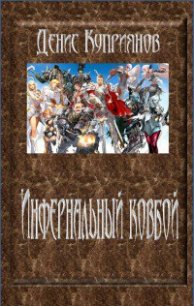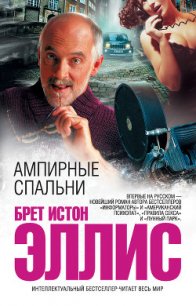Английский язык. Higher education - Филончик Екатерина (читать книги онлайн без сокращений TXT) 📗
R: Yes. Each course lasts for three weeks.
S: How many hours per week, please?
R: Well, it's about twenty-three hours a week. Usually four and a half days each week.
S: You must have a lot of students in the class, haven't you?
R: We have a lot of students in the school but in the classes only about between twelve and fourteen students.
S: Twelve and fourteen. Could you please give me the dates of the first and the second course?
R: Yes, certainly. The first course begins on 3 July and lasts until 20 July and the second course is from 24 July until 10 August.
S: What about the fees per course?
R: Yes, each … each course costs $150 plus VAT, which is 15 per cent and a $5 registration fee.
S: And deposit, please?
R: Yes, for each course we need a deposit of $20 and the $5 registration fee.
S: Oh thank you. Do we have to find our… our own accommodation?
R: No, we can do that for you. We have a lady who arranges the accommodation for you with a family.
S: How much does it cost?
R: Well you can choose to have bed and breakfast only which is $20 a week, or bed, breakfast and dinner which is about $27 a week.
S: $27. Thank you very much.
R: You're welcome.
ACTIVITY H
SELF-WORK:
PART I
DIRECTIONS:
Study the following topical vocabulary:
- to continue in higher education
продолжить образование в вузе
a community college
местный колледж
a technical school
техническое училище
a vocational school
профессиональное училище
- to have a special subject area
специализироваться в определенной области
a college of liberal arts
колледж свободных искусств
a humanity
гуманитарный предмет
a social science
общественная наука
a natural science
естественная наука
a program for undergraduates
программа для студентов
to get an undergraduate degree in the arts or sciences
получить степень (бакалавра) в области гуманитарных или естественных наук
to complete a course of study
закончить курс обучения
to get Bachelor of Arts or Science degree
получить степень бакалавра гуманитарных или естественных наук
to go on for a graduate or professional degree
продолжить обучение с целью получения степени магистра или доктора или профессиональной степени
programs for graduate and professional study
программы обучения для аспирантов и профессионального обучения
to get money from a source
получать средства из определенного источника
a publicly funded university
университет, финансируемый из общественных источников
a privately funded university
университет, финансируемый из частных источников
to be funded by a religious group
финансироваться религиозной общиной
to have graduate or professional
programs
предлагать программы обучения аспирантов и профессиональные программы
a course in academic subjects
академический курс
a non-academic subject
неакадемический предмет
to have a high school diploma
иметь диплом об окончании средней школы
-job training
профессиональная подготовка, обучение профессии
to give training for work in an area
обеспечить подготовку к работе в области
PART II
DIRECTIONS: Now read .
Text 2 Higher Education in the USA
In the United States, a student who has finished high school may want to continue in higher education. There are several ways to do it: universities, colleges, community colleges, and technical or vocational schools.
A university in the United States usually has several different colleges in it. Each has a special subject area. There may be a college of liberal arts where humanities, social sciences, natural sciences and mathematics are taught. There may be a college of education and a college of business. A program for undergraduates usually takes four years. University students get an undergraduate degree in the arts or sciences. If they complete a course of study they get Bachelor of Arts or Science degree. Students may leave the university at this time. They may also go on for a graduate or professional degree. The university always has programs for graduate and professional study in many subjects.
The university may get money from several different sources. A publicly funded university gets some money from the state government. A privately funded university gets money only from private sources. Or the university may be funded by a religious group.
College students usually spend four years at school, too. A college does not have graduate or professional programs. If a college student completes a course of study in arts or science, he or she gets Bachelor of Arts or Science degree. If college students want to continue for a graduate or professional degree, they must go to University. The college is usually funded in one of the three ways already described.
The program of study in the community college usually lasts two years. Not all of the subjects taught there are the usual school subjects. The community college may give courses in the regular academic subjects or subjects like dental technology, sewing and other non-academic subjects.
Not all students of the community college have a high school diploma. They may then go to a college for two more years to get the bachelor's degree. Community colleges are nearly always publicly funded.
The technical or vocational school has only job training, it has no academic program. Students may have a high school diploma, or not. Programs may take from six months to two years and more. The technical or vocational school gives training for work in areas such as electronics, carpentry and others.
PART III
DIRECTIONS:
Answer the questions:
1. What are the ways to continue in higher education in the USA?
2. What colleges does a university in the United States usually consist of?
3. What degrees are offered at universities?
4. What sources can a university get money from?
5. What programs and degrees are offered at a college?
6. What courses are given at a community college?
7. What kind of program does a technical or a vocational school offer?
PART III
DIRECTIONS:
Translate into English:
1. Молодые люди, окончившие школу, могут продолжить образование в университете, колледже, техническом или профессиональном училище.
2. Колледжи университета специализируются в различных областях: гуманитарных, общественных и естественных науках, образовании или бизнесе.
3. Университет предлагает программу для студентов, аспирантов и профессиональные программы.
4. Если молодой человек заканчивает курс обучения, он получает степень бакалавра гуманитарных или естественных наук.
5. Если студент продолжает обучение, он получает степень магистра или доктора или профессиональную степень.
6. Университеты могут финансироваться из общественных или частных источников, а также религиозной общиной.
7. Если студент колледжа заканчивает курс обучения гуманитарным или естественным наукам, он получает степень бакалавра.
8. Местный колледж предлагает академические курсы и курсы неакадемических предметов.
9. Технические и профессиональные училища предлагают подготовку в различных областях.




